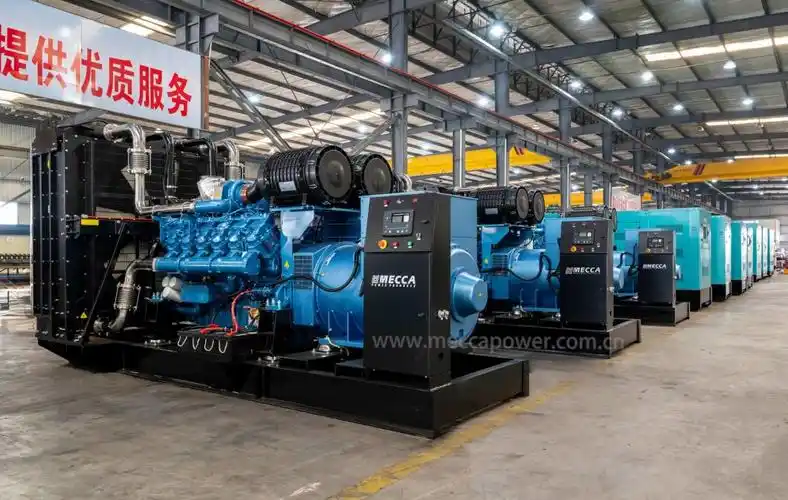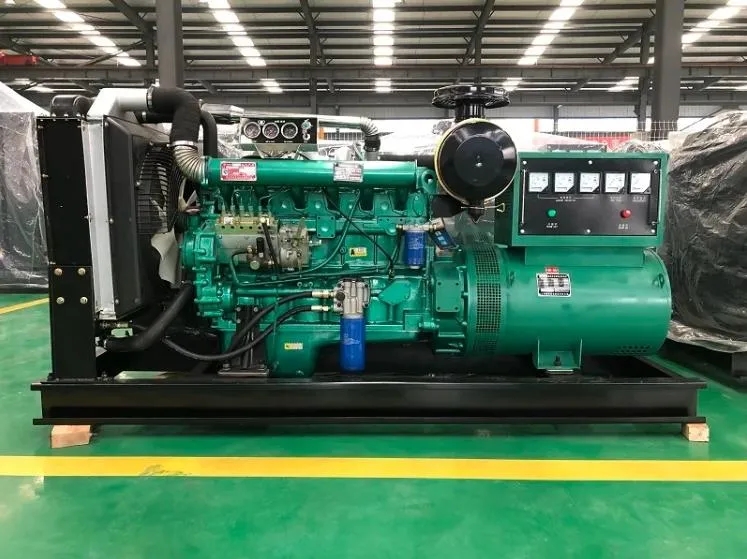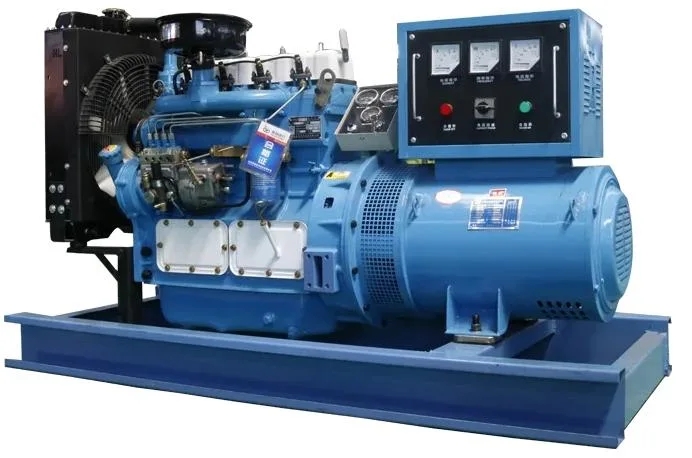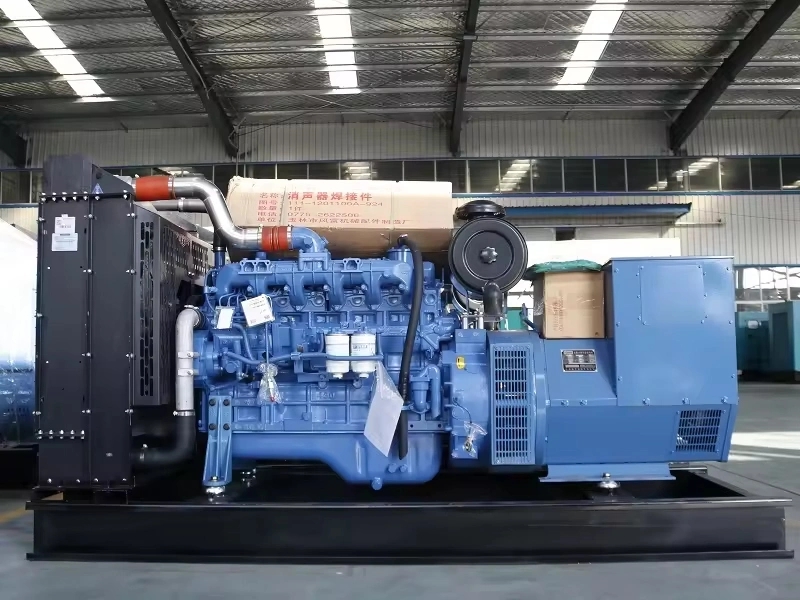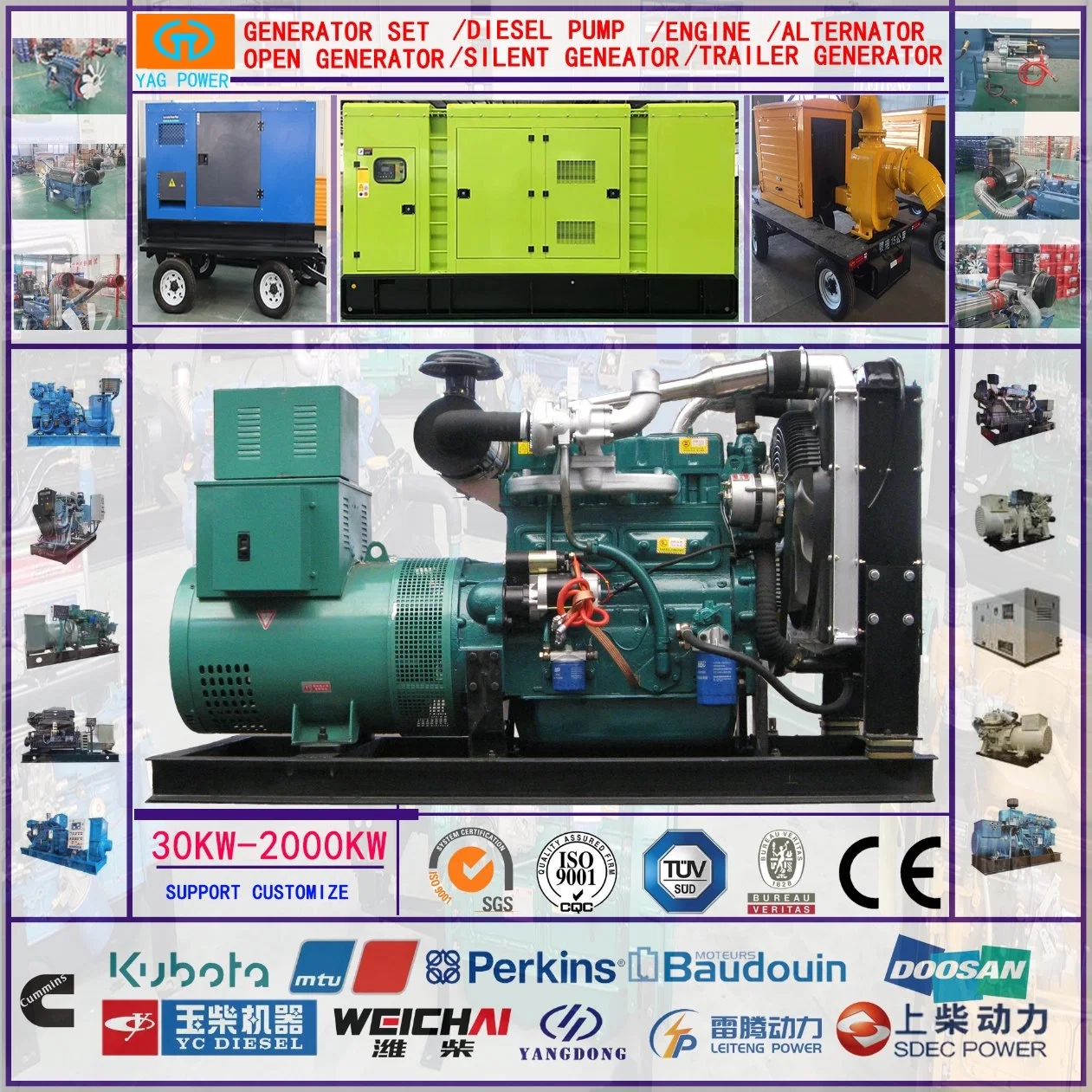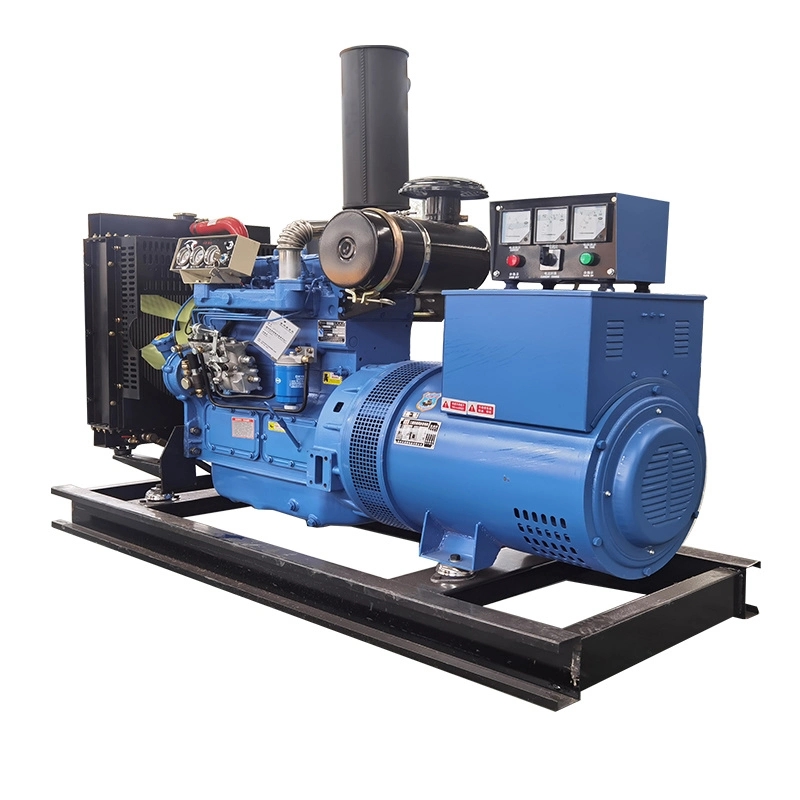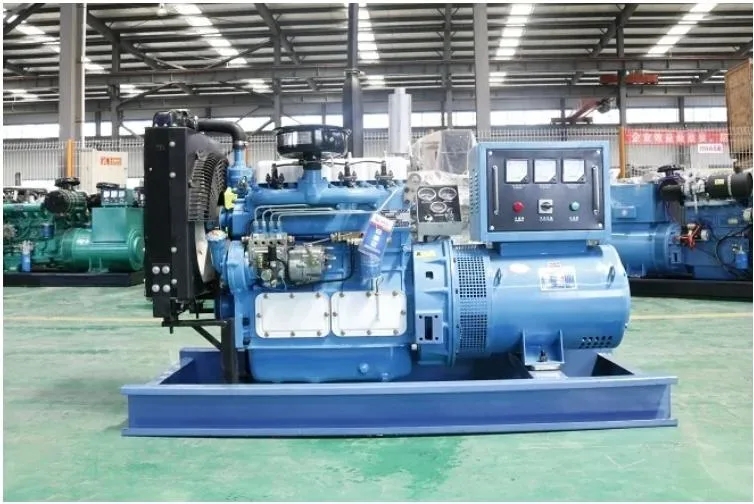Table of Contents
Toggle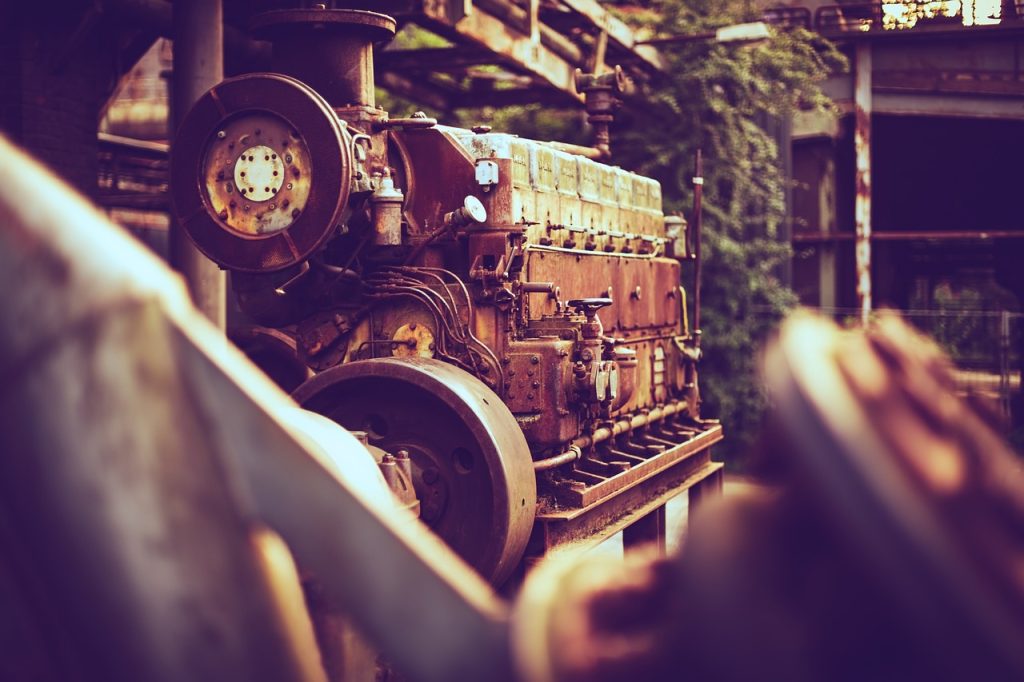
ComparisonWhen it comes to selecting the ideal power source for your residential, commercial, or industrial requirements, the choice between diesel and petrol generators can be a crucial decision. Both options offer distinct advantages and drawbacks, making it essential to understand their respective strengths and limitations. In this comprehensive guide, we’ll delve into the intricate details of diesel and petrol generators, empowering you to make an informed decision that aligns with your specific needs.
Introduction
Portable generators have become an indispensable tool, providing reliable power solutions for a wide range of applications, from powering construction sites and outdoor events to serving as backup during outages. However, the fuel source you choose can significantly impact the generator’s performance, efficiency, and overall cost-effectiveness. Whether you opt for a diesel or petrol generator, each option presents unique characteristics that warrant careful consideration.
Fuel Efficiency: A Crucial Differentiator
One of the most significant advantages of diesel generators lies in their remarkable fuel efficiency. These workhorses are renowned for their ability to generate more power while consuming less fuel compared to their petrol counterparts. This superior fuel economy translates into substantial cost savings over the generator’s lifespan, particularly in scenarios where prolonged or continuous operation is required.
Diesel engines achieve this remarkable efficiency through their higher compression ratios and advanced combustion processes. By squeezing the air-fuel mixture more tightly, diesel engines extract more energy from each drop of fuel, resulting in a more efficient conversion of chemical energy into mechanical power.
Quantifying the Fuel Savings
To put this fuel efficiency into perspective, consider the following example: A typical 120kW diesel generator consumes between 10.9 and 32.1 liters of fuel per hour, depending on the load. In contrast, a petrol generator of comparable output would consume significantly more fuel, often burning up to 50% more fuel over an extended period.
This remarkable fuel efficiency not only translates into cost savings but also contributes to a reduced environmental impact by minimizing emissions and reducing the overall carbon footprint associated with power generation.
Durability and Longevity: Built to Last
Diesel generators are renowned for their exceptional durability and longevity, outperforming their petrol counterparts in terms of operational lifespan. This robustness stems from the inherent design and construction of diesel engines, which feature fewer moving parts and a simpler fuel delivery system compared to petrol engines.
The Advantage of Simplicity
Unlike petrol engines, diesel engines do not require spark plugs, carburetors, or complex fuel injection systems. This simplicity not only reduces the number of components that can potentially fail but also minimizes the maintenance requirements. As a result, diesel generators can operate for extended periods with minimal downtime, making them an ideal choice for applications that demand uninterrupted power supply.
Quantifying the Lifespan Advantage
While the exact lifespan of a generator depends on various factors, including maintenance practices and operating conditions, diesel generators typically outshine their petrol counterparts by a significant margin. On average, a well-maintained diesel generator can provide reliable service for up to 20 years, while petrol generators may require replacement after a decade or less of operation.
This extended lifespan not only reduces the need for frequent replacements but also contributes to overall cost savings, making diesel generators a wise investment for long-term power generation needs.
Power Output and Load Handling
When it comes to sheer power output and the ability to handle demanding loads, diesel generators stand out as the clear winners. Their robust engines are designed to deliver consistent and reliable power, even under heavy loads or challenging operating conditions.
Tackling Heavy-Duty Applications
Diesel generators are the preferred choice for powering heavy machinery, construction sites, industrial facilities, and large-scale events. Their ability to handle substantial loads with ease makes them indispensable in scenarios where consistent and uninterrupted power supply is critical.
In contrast, petrol generators, while capable of handling smaller loads, may struggle to meet the demands of heavy-duty applications or prolonged periods of operation under high load conditions.
Seamless Load Acceptance
One of the key advantages of diesel generators is their seamless load acceptance capabilities. When faced with sudden increases in power demand, diesel engines can readily adapt by injecting more fuel into the combustion chambers, allowing for an immediate surge in power output.
This responsiveness ensures that critical equipment and systems remain operational, even during periods of fluctuating power demands, minimizing the risk of disruptions or downtime.
Safety and Environmental Considerations
While both diesel and petrol generators pose inherent risks due to their flammable fuel sources, diesel generators generally offer a safer and more environmentally friendly option when compared to their petrol counterparts.
Reduced Fire Hazards
Diesel fuel is less volatile and less flammable than petrol, making it less prone to accidental ignition or explosions. This characteristic enhances the overall safety of diesel generators, particularly in settings where fire hazards are a concern, such as industrial facilities or construction sites.
Lower Emissions and Environmental Impact
Diesel generators typically produce lower emissions of certain harmful pollutants, such as carbon monoxide and hydrocarbons, compared to petrol generators. Additionally, modern diesel engines incorporate advanced emission control technologies, further reducing their environmental impact.
While diesel generators still contribute to greenhouse gas emissions, their superior fuel efficiency and lower emissions of certain pollutants make them a more environmentally responsible choice compared to their petrol counterparts, particularly in applications that require extended periods of operation.
Maintenance Requirements: Striking a Balance
When it comes to maintenance, both diesel and petrol generators have their unique requirements, and it’s essential to strike a balance between upfront costs and long-term operational expenses.
Diesel Generators: Fewer Components, Less Frequent Maintenance
One of the key advantages of diesel generators is their relatively low maintenance requirements. With fewer moving parts and a simpler fuel delivery system, diesel engines require less frequent maintenance compared to their petrol counterparts.
For example, a typical water-cooled diesel engine operating at 1,800 RPM can run for up to 30,000 hours without requiring major maintenance, while a comparable petrol engine may need service after just 6,000 to 10,000 hours of operation.
Petrol Generators: More Frequent Maintenance, Lower Initial Costs
While petrol generators may require more frequent maintenance, such as regular spark plug replacements and fuel system cleaning, they often come with a lower initial purchase cost. This can make them an attractive option for applications where the generator will only be used intermittently or for short periods.
It’s important to weigh the trade-off between upfront costs and long-term maintenance expenses when selecting between diesel and petrol generators, as the overall cost of ownership can vary significantly based on your specific usage patterns.
Portability and Ease of Use
Portability and ease of use are often crucial factors when selecting a generator, particularly for applications that require frequent relocation or temporary power solutions.
Petrol Generators: Lightweight and Compact
In terms of portability, petrol generators often have the upper hand. Their smaller size and lighter weight make them easier to transport and maneuver, making them an ideal choice for camping trips, recreational activities, or job sites that require frequent relocation.
Additionally, petrol generators are generally easier to start, with many models featuring user-friendly pull-start mechanisms or electric starters, eliminating the need for complex starting procedures.
Diesel Generators: Balancing Power and Portability
While diesel generators are typically larger and heavier than their petrol counterparts, many manufacturers offer portable models that strike a balance between power output and portability. These portable diesel generators are designed with features such as ergonomic handles, wheels, and compact footprints, allowing for easier transportation and setup in remote locations or job sites.
It’s worth noting that the increased weight and size of diesel generators are often a trade-off for their superior power output, fuel efficiency, and durability, making them a suitable choice for applications that prioritize these factors over portability.
Noise Levels: Striking the Right Balance
Noise pollution is a significant consideration when selecting a generator, particularly in residential or urban settings where noise levels can impact the surrounding environment.
Petrol Generators: Quieter Operation
Petrol generators generally operate at lower decibel levels compared to their diesel counterparts, making them a more suitable choice for noise-sensitive applications or residential areas. Their smaller size and higher revolutions per minute (RPM) contribute to their relatively quieter operation.
However, it’s important to note that even petrol generators can produce significant noise levels, and appropriate sound-dampening measures or enclosures may be necessary to minimize disturbances.
Diesel Generators: Balancing Power and Noise
While diesel generators tend to be noisier than their petrol counterparts, many modern models incorporate advanced noise-reduction technologies, such as sound-insulated enclosures and vibration-dampening systems. These innovations have significantly reduced the noise levels associated with diesel generators, making them a viable option even in noise-sensitive environments.
When selecting a diesel generator, it’s crucial to consider the noise rating and any additional sound-dampening features offered by the manufacturer to ensure compliance with local noise regulations and minimize disturbances to the surrounding area.
Fuel Storage and Shelf Life
The storage and shelf life of the fuel used in generators can have a significant impact on their overall reliability and performance, particularly in scenarios where the generator may be idle for extended periods.
Diesel Fuel: Longer Shelf Life and Stability
Diesel fuel is renowned for its superior shelf life and stability compared to petrol. This characteristic makes diesel generators a more reliable choice in situations where the generator may be stored for extended periods or used infrequently.
Diesel fuel is less prone to evaporation and degradation over time, reducing the risk of fuel system issues or starting problems that can arise from stale or contaminated fuel.
Petrol: Shorter Shelf Life and Potential Degradation
In contrast, petrol has a relatively shorter shelf life and is more susceptible to degradation over time. As petrol ages, it can form gummy deposits and varnish-like residues that can clog fuel lines, carburetors, and injectors, leading to starting difficulties and reduced performance.
To mitigate these issues, it’s essential to follow proper fuel storage and maintenance procedures when using petrol generators, including regularly replacing old fuel and treating the fuel with stabilizers to extend its shelf life.
Initial Cost and Long-Term Expenses
When selecting a generator, it’s crucial to consider not only the initial purchase cost but also the long-term expenses associated with ownership, including fuel costs, maintenance, and potential repairs.
Diesel Generators: Higher Initial Investment, Lower Long-Term Costs
Diesel generators typically come with a higher upfront cost compared to their petrol counterparts. This initial investment can be attributed to the robust construction, advanced technologies, and more durable components used in diesel engines.
However, the higher initial cost is often offset by the lower long-term operating costs associated with diesel generators. Their superior fuel efficiency, reduced maintenance requirements, and extended lifespan can result in significant cost savings over the generator’s lifetime, making them a more cost-effective choice in the long run.
Petrol Generators: Lower Initial Cost, Higher Long-Term Expenses
Petrol generators are generally more affordable upfront, making them an attractive option for those with limited budgets or temporary power needs. However, it’s important to consider the potential long-term expenses associated with petrol generators, including higher fuel costs, more frequent maintenance requirements, and a shorter operational lifespan.
By carefully evaluating your specific power needs, usage patterns, and budget constraints, you can determine whether the lower initial cost of a petrol generator outweighs the potential long-term expenses or if investing in a diesel generator would provide greater cost savings over the lifetime of the equipment.
Fuel Availability and Accessibility
In certain scenarios, the availability and accessibility of fuel can play a crucial role in determining the suitability of a diesel or petrol generator.
Diesel Fuel: Widespread Availability and Accessibility
Diesel fuel is widely available and accessible in most regions, making it a reliable choice for power generation needs, particularly in remote or rural areas. Many industrial and commercial facilities, as well as transportation hubs, maintain readily available supplies of diesel fuel, ensuring a consistent source of power for diesel generators.
Additionally, the widespread use of diesel fuel in various industries and applications often translates to a more stable supply chain and pricing, reducing the risk of fuel shortages or price fluctuations that could impact the cost-effectiveness of diesel generators.
Petrol: Availability Varies by Location
While petrol is widely available in most urban and suburban areas, its availability can be more limited in remote or rural regions. This factor can pose challenges for those relying on petrol generators in areas with limited access to fuel stations or supply chains.
Furthermore, petrol prices can be subject to greater volatility and fluctuations, potentially impacting the long-term operating costs of petrol generators, particularly in regions where fuel prices are heavily influenced by external factors or market conditions.
Applications and Use Cases
The choice between a diesel or petrol generator ultimately depends on the specific application and use case. While both options offer distinct advantages, certain scenarios may be better suited for one type of generator over the other.
Diesel Generators: Ideal for Heavy-Duty and Continuous Applications
Diesel generators excel in applications that require continuous, heavy-duty power generation, such as:
- Industrial facilities and manufacturing plants
- Construction sites and large-scale projects
- Mining operations and remote worksites
- Emergency backup power for critical infrastructure
- Large-scale events and outdoor festivals
In these scenarios, the superior power output, fuel efficiency, and durability of diesel generators make them the preferred choice, ensuring reliable and uninterrupted power supply even under demanding conditions.
Petrol Generators: Suitable for Recreational and Temporary Applications
Petrol generators are well-suited for recreational activities, temporary power needs, and applications that require portability and ease of use, such as:
- Camping and outdoor adventures
- Powering small tools and equipment on job sites
- Backup power for residential homes during outages
- Temporary power solutions for events or parties
- Powering recreational vehicles (RVs) and boats
In these applications, the lightweight and compact design of petrol generators, combined with their relatively quiet operation and lower initial cost, make them a practical choice, particularly when power requirements are modest and portability is a priority.
Conclusion
Choosing between a diesel or petrol generator is a decision that requires careful consideration of various factors, including power requirements, fuel efficiency, durability, maintenance needs, portability, noise levels, and cost-effectiveness. While diesel generators offer superior fuel efficiency, longevity, and power output, petrol generators may be more suitable for applications that prioritize portability, lower initial costs, and quieter operation.
Ultimately, the ideal choice will depend on your specific needs, usage patterns, and budget constraints. By weighing the pros and cons of each option and aligning them with your unique requirements, you can make an informed decision that ensures reliable and cost-effective power generation for years to come.
Remember, proper maintenance and adherence to safety protocols are crucial for both diesel and petrol generators, regardless of the fuel source. By following best practices and seeking professional guidance when needed, you can maximize the lifespan and performance of your generator while ensuring a safe and efficient power supply for your residential, commercial, or industrial applications.




